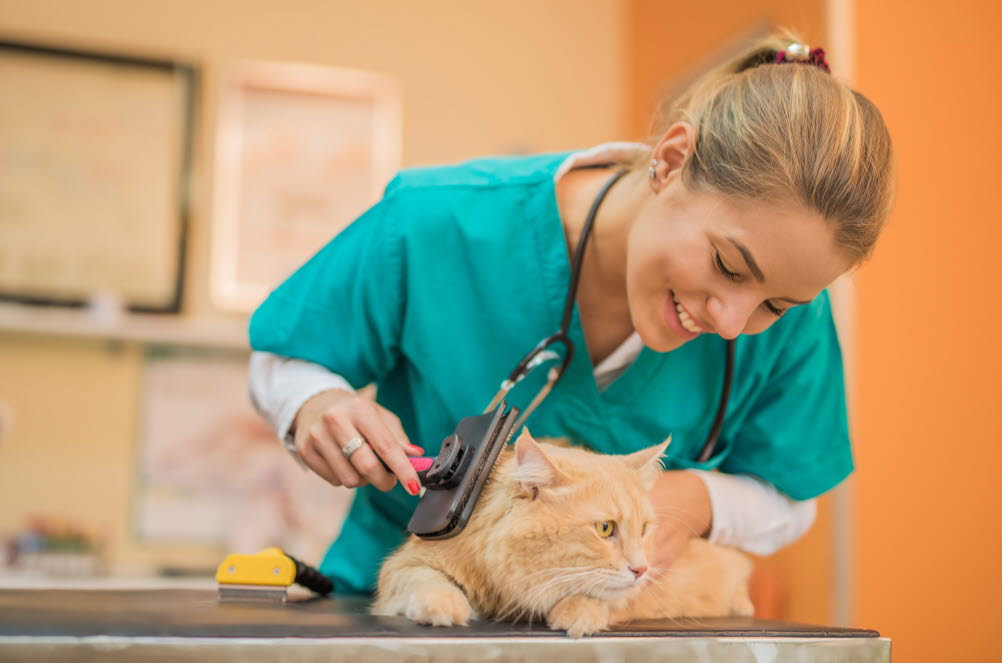
Advertorial: Hill's Pet Nutrition
Hairballs are a common ailment for cats and a common source of stress for owners. It is not pleasant to hear the sound of retching in the middle of the night or, worse still, stepping on the aftermath in the dark!
What causes hairballs?
Cats are fastidiously clean and spend a lot of time grooming themselves to remove dirt and debris from their coats. Some cats also groom themselves as a stress reduction technique. This, combined with the fact that they have quite rough papillae on their tongues, means that they pick up loose hair whilst grooming and end up swallowing some of that hair. Hair is indigestible, so the gastric enzymes that normally break down the food in the cats’ gastrointestinal system are not able to break down hair.
For some cats the ingested hair will pass harmlessly through the gastrointestinal tract and out through their faeces. For other cats, however, the hair can start to accumulate in the stomach and can become irritating, which is when they regurgitate it back up again. The colour of the hairball can look quite alarming, as the hair has been mixed with saliva and other gastric juices, which can change the appearance. Long haired cats such as Persians or Main Coons can be more susceptible to hairballs due to the length of their coat and the time required grooming to keep themselves looking fabulous! Seasonality can play a part too, with warmer weather resulting in more shedding of winter coats, which can increase the number of hairballs. It is also thought that cats which spend more time indoors may groom themselves more.
Occasionally, regurgitating hairballs can be a sign of some other underlying disease, so it is always a good idea to get your cat checked by your veterinarian.
Is there anything I can do for my cat that is regurgitating hairballs?
Regular brushing and grooming is really important – especially in long haired cats – as this will pick up a lot of the loose hair in the coat and you can dispose of it appropriately. There are some great grooming tools on the market which are designed specifically for this.
Some cats will respond well to a diet, such as Hill’s Science Diet Hairball Control, which is higher in natural fibres. These fibres can help move the hairballs comfortably through the gastrointestinal system and out through the stools. This diet also contains clinically proven antioxidants, vitamin C & E, for a healthy immune system and Vitamin E, and omega-3 and -6 fatty acids for beautiful skin and fur. You can learn more about the diet here: https://www.hillspet.com.au/cat-food/sd-feline-adult-hairball-control-dry
Other cats may also need some gentle laxative products to assist the passage of hairballs. Always use these under the guidance of your vet.
If your cat seems in pain with the hairballs, is grooming a lot more than usual, has a loss of appetite, seems lethargic, or is vomiting more frequently, then always contact your local veterinarian.

Bryony graduated in 2007 from Murdoch University in Perth. She worked as a veterinarian in small animal practice treating primarily dogs and cats for almost 7 years before moving to an industry role with Hill’s Pet Nutrition in 2015. She works as a Professional Consulting Veterinarian for South Australia and Western Australia and is passionate about nutrition in pets.
